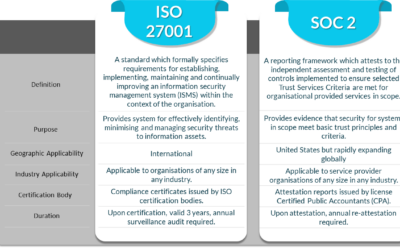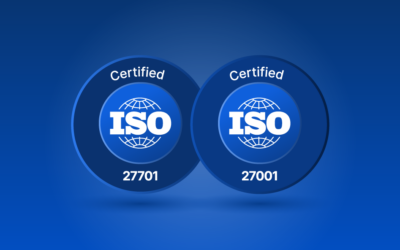In today’s digital world, information is one of the most valuable assets for any organization. With the rapid increase in cyber threats, data breaches, and ever-evolving security risks, the need for robust information security management has never been greater. ISO 27001 Consultant is the international standard for information security management systems (ISMS), providing organizations with a structured approach to managing sensitive data, protecting it from potential threats, and ensuring compliance with global security requirements.
An ISO 27001 consultant plays a crucial role in helping organizations implement and maintain the ISO 27001 standard, ensuring they establish effective information security management systems and enhance their resilience against potential security breaches.
This article explores the role of an ISO 27001 consultant, the importance of ISO 27001 certification, the benefits of working with an ISO 27001 consultant, and how organizations can prepare for a successful ISO 27001 certification process.
What Is ISO 27001?
ISO 27001 is a globally recognized standard for Information Security Management Systems (ISMS). Developed by the International Organization for Standardization (ISO), it provides organizations with a comprehensive framework for implementing best practices in managing sensitive data. The aim of ISO 27001 is to ensure that organizations have proper security controls in place to protect data confidentiality, integrity, and availability.
The core of ISO 27001 is its systematic approach to information security. It involves identifying risks and threats, evaluating vulnerabilities, implementing appropriate controls, and continuously monitoring and improving the security environment.
ISO 27001 certification can be awarded to organizations that successfully demonstrate their commitment to information security by meeting the requirements outlined in the standard. It is applicable to all organizations, regardless of size, industry, or location.
The Role of an ISO 27001 Consultant
An ISO 27001 consultant is a specialist who helps organizations implement and achieve ISO 27001 certification. The consultant’s role can vary depending on the needs of the organization, but it typically involves providing expertise and guidance in the following areas:
1. Initial Assessment and Gap Analysis
Before beginning the implementation of an ISMS, an ISO 27001 consultant conducts a thorough gap analysis to assess the current state of the organization’s information security practices. This analysis identifies any gaps between the existing security practices and the requirements outlined in the ISO 27001 standard. The consultant then provides a roadmap for bridging these gaps, ensuring that the organization can comply with ISO 27001.
2. Designing and Implementing the ISMS

Based on the findings from the gap analysis, the consultant helps design and implement an ISMS tailored to the organization’s specific needs. This includes defining the scope of the ISMS, identifying assets that need protection, assessing risks, and selecting appropriate security controls. The consultant will also work with the organization’s stakeholders to ensure that the ISMS integrates seamlessly with the organization’s operations.
3. Developing Policies and Procedures
ISO 27001 requires organizations to have specific policies and procedures in place to manage their information security efforts. An ISO 27001 consultant helps develop these critical documents, including information security policies, risk management procedures, incident response protocols, and business continuity plans. The consultant ensures that these documents align with ISO 27001 requirements and are practical for the organization’s operations.
4. Training and Awareness Programs
A key component of implementing ISO 27001 is ensuring that all employees are aware of their roles and responsibilities in maintaining information security. The consultant provides training programs to employees at all levels of the organization. This helps ensure that staff understand the importance of information security, follow best practices, and comply with the organization’s security policies.
5. Internal Audits and Compliance Checks
Once the ISMS has been implemented, the consultant will assist in conducting internal audits to assess whether the organization is compliant with ISO 27001. These audits identify areas for improvement and ensure that the ISMS remains effective. The consultant also helps prepare for the certification audit by ensuring that all documentation is in order and that the organization is meeting all the required controls.
6. Ongoing Monitoring and Continuous Improvement
ISO 27001 is not a one-time certification; it requires continuous monitoring, evaluation, and improvement. An ISO 27001 consultant assists in developing processes for ongoing monitoring and performance measurement. This ensures that the ISMS remains relevant in the face of evolving security risks, technological changes, and regulatory updates.
7. Assistance in Achieving ISO 27001 Certification
Finally, an ISO 27001 consultant plays a pivotal role in preparing the organization for its certification audit. They ensure that all necessary documentation is in place, that the organization’s security practices are in full compliance, and that all stakeholders are prepared for the audit. The consultant works closely with the certification body to ensure a smooth audit process and helps the organization achieve ISO 27001 certification.
Benefits of Hiring an ISO 27001 Consultant
While organizations can pursue ISO 27001 certification without the help of a consultant, hiring an ISO 27001 consultant offers several significant advantages:
1. Expertise and Knowledge
ISO 27001 consultants are experienced professionals who have an in-depth understanding of the standard and its requirements. They can provide expert advice on best practices and guide the organization through the complexities of the implementation process.
2. Time and Cost Efficiency
Achieving ISO 27001 certification can be a time-consuming and resource-intensive process. An experienced consultant can expedite the process by providing structured guidance, minimizing the time spent on trial and error, and ensuring that the organization is following the most efficient path toward certification. This ultimately saves both time and costs.
3. Customized Solutions
An ISO 27001 consultant tailors the ISMS to meet the specific needs of the organization. They consider factors such as the organization’s size, industry, data sensitivity, and regulatory requirements, ensuring that the information security system is appropriate for the organization’s unique environment.
4. Risk Management and Mitigation
By conducting a comprehensive risk assessment, the consultant helps identify vulnerabilities in the organization’s current security practices. By addressing these risks early in the process, the consultant helps minimize potential security breaches, data loss, and financial losses.
5. Support for Continuous Improvement

ISO 27001 requires ongoing monitoring and improvement of the ISMS. A consultant provides the expertise needed to establish processes for continuous monitoring and performance evaluation, ensuring that the information security practices remain robust and effective over time.
6. Confidence and Credibility
ISO 27001 certification is an internationally recognized mark of trust. Organizations that achieve certification demonstrate to clients, partners, and stakeholders that they are committed to information security. Working with a qualified consultant enhances the likelihood of achieving certification and bolsters the organization’s credibility in the marketplace.
Preparing for ISO 27001 Certification
Achieving ISO 27001 certification is a structured process that requires careful planning and execution. Here are the key steps involved in preparing for certification:
1. Initial Planning and Commitment
The first step in the process is obtaining commitment from senior management. Achieving ISO 27001 certification requires dedicated resources, and the support of leadership is essential for the success of the project. The ISO 27001 consultant will work with senior management to define the scope and objectives of the ISMS.
2. Risk Assessment and Gap Analysis
The next step is conducting a thorough risk assessment and gap analysis. The consultant will assess the current information security practices, identify potential vulnerabilities, and evaluate the organization’s readiness for certification. This step helps determine where improvements are needed.
3. Developing the ISMS
Once the risks have been identified, the consultant helps design and implement an ISMS tailored to the organization’s needs. This includes selecting appropriate security controls, defining policies, and creating procedures to address identified risks.
4. Training and Awareness
To ensure that all employees understand their role in the ISMS, the consultant provides training programs and raises awareness about information security. This ensures that everyone is aligned with the organization’s security objectives.
5. Conducting Internal Audits
Before the final certification audit, the consultant assists in conducting internal audits to ensure the ISMS is operating effectively and that the organization is compliant with ISO 27001. Any areas of non-compliance are addressed before the official certification audit.
6. Certification Audit
The final step is the certification audit, conducted by an external certification body. The ISO 27001 consultant ensures that the organization is fully prepared for the audit, ensuring a smooth process and increasing the chances of certification.
Conclusion
ISO 27001 is a crucial framework for managing and securing sensitive information. With the increasing prevalence of cyberattacks, data breaches, and privacy concerns, ISO 27001 certification provides organizations with a structured approach to safeguarding their data and mitigating risks.
An ISO 27001 consultant is a valuable asset in this journey, providing the expertise, guidance, and support necessary to implement a comprehensive Information Security Management System. By working with a qualified consultant, organizations can ensure that they meet ISO 27001 requirements, achieve certification, and demonstrate their commitment to information security to clients, stakeholders, and regulatory bodies.



0 Comments